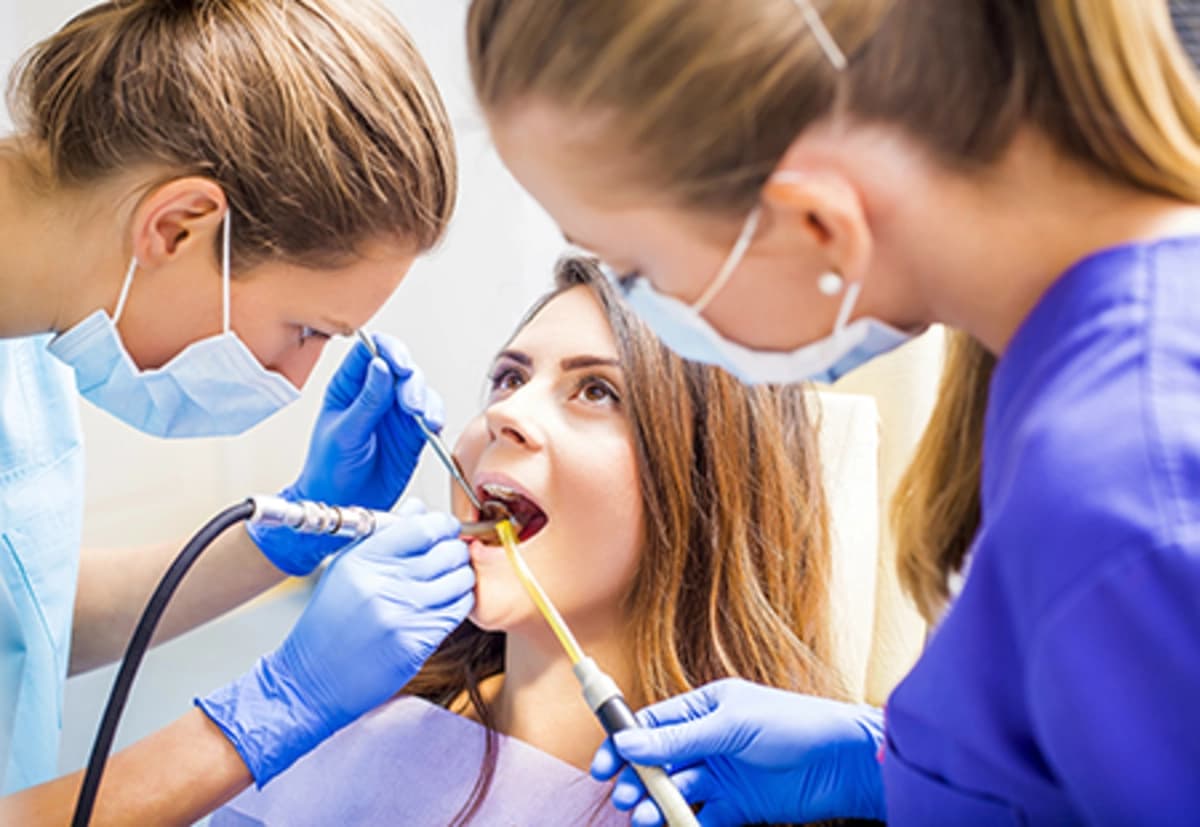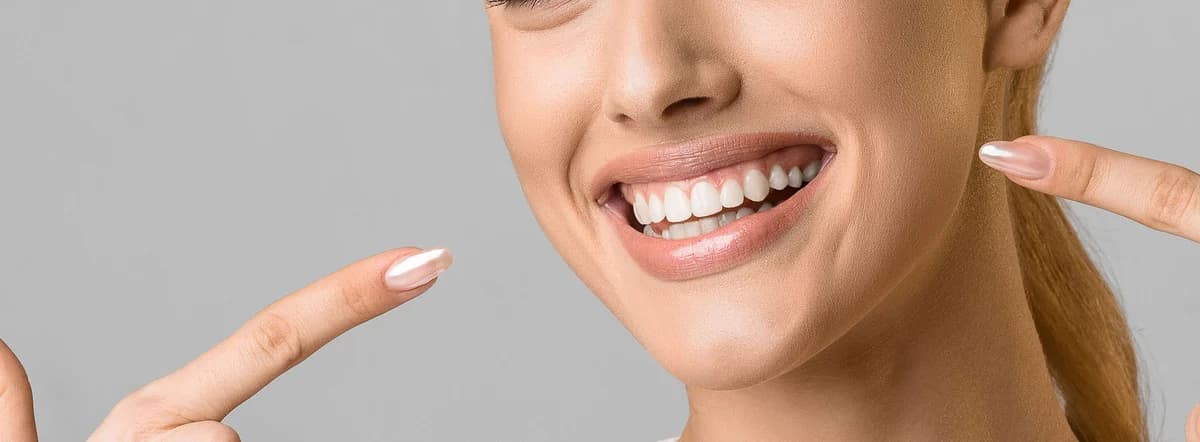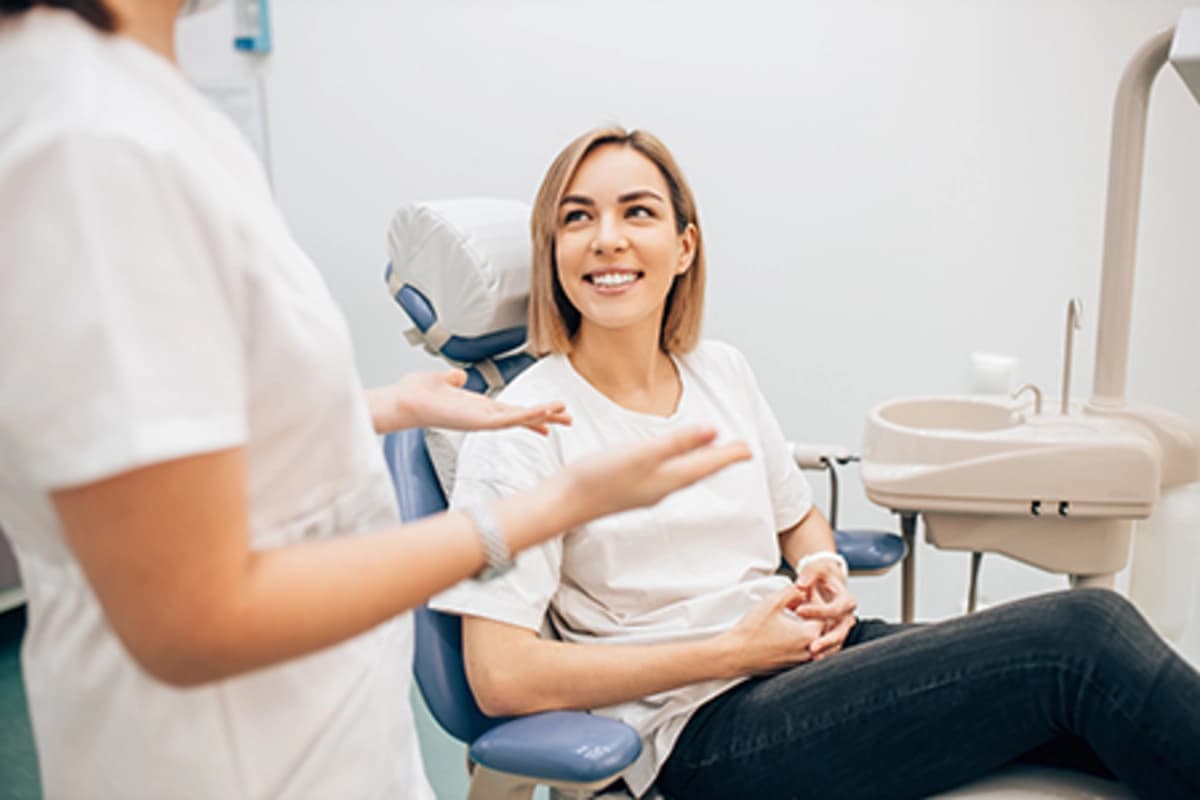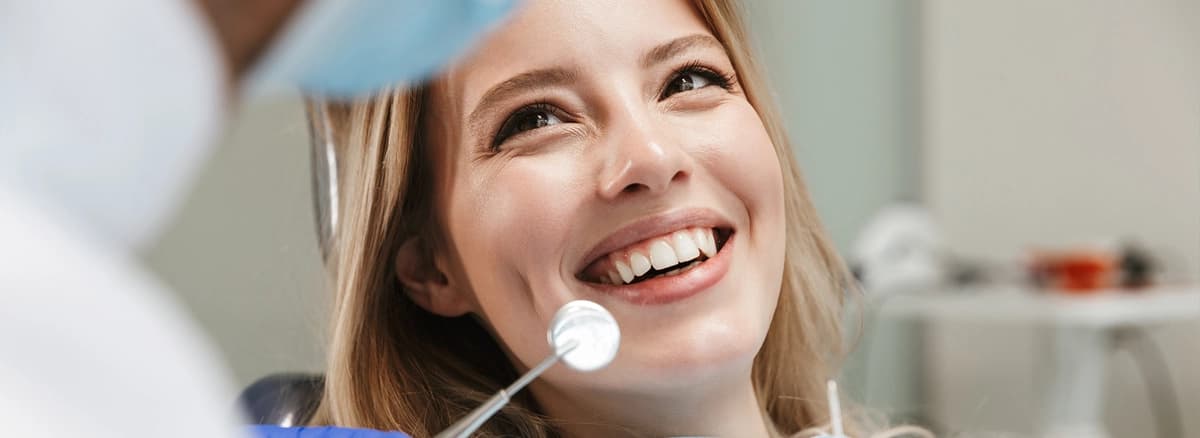Our expert team is dedicated to giving you the freshest, healthiest smile possible with top-tier care and state-of-the-art technology. A dental cleaning procedure at Smile4Me isn't just routine—it's an experience designed to leave your teeth feeling cleaner, brighter, and healthier than ever. Whether you need a routine or deep dental cleaning, we provide gentle, thorough treatments that protect your smile and keep your gums in shape. Keep reading to see why our patients trust us for the best dental cleanings in Astoria and what you can expect during your visit!
What Is a Dental Cleaning Procedure and Why Is It Important?
A dental cleaning is a professional cleaning performed by a dental hygienist to remove plaque, tartar, and stains that regular brushing and flossing can’t eliminate. It helps prevent cavities, gum disease, and even tooth loss. Without routine cleanings, bacteria in your mouth can contribute to more severe health conditions like heart disease and diabetes. Regular cleanings also allow your dentist to catch potential issues early, saving you from costly and painful treatments down the road.
Types of Dental Cleaning Procedures

Not all dental cleanings are the same. Depending on your oral health needs, your dentist may recommend a specific dental cleaning procedure that best suits your condition.
Prophylaxis Cleaning (Routine Cleaning)
This standard cleaning is recommended for patients with generally healthy teeth and gums. It removes minor plaque and tartar buildup and is performed every six months as a preventive measure.
Deep Dental Cleaning Procedure (Scaling and Root Planing)
A deep dental cleaning is needed for patients with gum disease or excessive tartar buildup below the gumline. Scaling removes plaque and tartar, while root planing smooths the tooth roots to help the gums reattach properly.
Periodontal Cleaning (Gum Disease Cleaning)
This periodontal cleaning is designed for patients with a history of gum disease. It’s similar to a deep cleaning but is performed more frequently—every three to four months—to prevent bacteria from causing further damage to the gums and bone.
Gross Debridement Cleaning (Heavy Plaque Removal)
For patients who haven’t had a dental visit in a long time, a gross debridement cleaning removes thick layers of tartar before a standard cleaning can be completed. This procedure is often a necessary first step before other types of dental cleanings can be performed.
What to Expect During a Dental Cleaning
If it’s been a while since your last visit, you may wonder what happens during dental cleanings. Here’s a step-by-step breakdown of what you can expect.
Step 1: Initial Examination
A dental hygienist will use a small mirror to check for signs of gum disease, cavities, or other dental concerns. If any serious issues are detected, the dentist may intervene before proceeding.
Step 2: Plaque and Tartar Removal
Using a scaler, the hygienist will carefully remove plaque and tartar from your teeth and around the gumline. The more buildup you have, the longer this step takes.
Step 3: Polishing and Stain Removal
After scaling, your teeth will be polished with gritty toothpaste and a high-powered electric brush, which helps remove stains and smoothen the enamel.
Step 4: Flossing & Rinsing
The hygienist will floss between your teeth to remove any leftover plaque or toothpaste. Then, you will rinse your mouth to clear away debris and freshen your breath.
Step 5: Fluoride Treatment (Optional)
A fluoride treatment may be applied as a final step to strengthen enamel and protect against cavities. It is either painted onto your teeth or placed in a foam tray for a minute.
Teeth Cleaning Before and After: What to Expect

Many patients wonder what difference a dental cleaning will make to the look and feel of their teeth. A professional cleaning does much more than just freshen your breath—it plays a vital role in maintaining long-term oral health.
Immediate Benefits of a Dental Cleaning
Right after your dental cleaning, you’ll notice a refreshing, just-polished feeling that’s hard to achieve with brushing and flossing alone.
Smoother, Cleaner Teeth
Removing plaque and tartar leaves your teeth feeling incredibly smooth—almost like a fresh start for your enamel.
Brighter, Whiter Smile
While a cleaning won’t replace professional whitening, it does remove surface stains from coffee, tea, and other foods, making your teeth appear visibly cleaner.
Fresher Breath
Plaque buildup is a major cause of bad breath. A thorough cleaning eliminates odor-causing bacteria, leaving your mouth feeling fresh and minty clean.
Gum Health Boost
If your gums were inflamed due to plaque or tartar, you might notice that they look and feel healthier almost immediately.
Some patients experience mild sensitivity after cleaning, especially if they have a lot of plaque buildup removed. This is temporary and should subside within a few hours to a day. Using sensitive toothpaste or avoiding extremely hot or cold foods can help minimize discomfort.
Long-Term Benefits of Regular Cleanings
While the immediate benefits of dental cleaning are satisfying, the real power of regular cleanings lies in their long-term impact on your oral health.
Prevention of Cavities & Tooth Decay
Plaque is the leading cause of cavities. Professional cleanings remove buildup in areas that are difficult to reach with a toothbrush, reducing the risk of decay.
Protection Against Gum Disease
A deep dental cleaning is especially beneficial for patients with gingivitis or early-stage gum disease. Routine cleanings prevent plaque from hardening into tartar, which can cause periodontal disease and lead to tooth loss if left untreated.
Better Overall Health
Studies have shown a connection between oral health and overall health, including links between gum disease and heart disease, diabetes, and even dementia. Keeping your teeth and gums clean helps protect more than just your smile.
Cost Savings on Future Dental Work
Regular cleanings can help you avoid expensive procedures down the road. Preventing decay and gum disease means fewer fillings, crowns, or root canals in the future.
Maintaining a Whiter, Healthier Smile
Long-term benefits include fewer stains, stronger enamel, and teeth that stay healthier longer. Regular visits help prevent severe discoloration so your smile remains bright and attractive.
By keeping up with routine cleanings, you’ll feel the difference and see it, too. The before-and-after results of professional dental cleanings speak for themselves—your teeth will look cleaner, feel smoother, and be healthier with every visit!
How Smile4Me Dental Care Provides the Best Dental Cleanings in Astoria

At Smile4Me Dental Care, we prioritize your comfort and oral health with advanced cleaning techniques and a friendly team that ensures a stress-free experience. Our state-of-the-art facility and experienced dentists in Astoria make us the best choice for maintaining a healthy smile.
Why Choose Smile4Me Dental Care?
At Smile4Me Dental Care, we believe that dental cleanings should be stress-free, effective, and tailored to each patient’s needs. Our team is committed to providing the best dental cleaning experience in Astoria, ensuring that every visit leaves you feeling refreshed and confident in your oral health.
Gentle Yet Effective Cleaning Methods
We use advanced tools and techniques to remove plaque and tartar without discomfort, so even those with sensitive teeth can feel at ease.
Personalized Patient Education
Our hygienists take the time to explain the best oral hygiene practices, ensuring you leave with the knowledge to keep your smile clean between visits.
State-of-the-Art Technology
From ultrasonic scalers to digital imaging, we use the latest advancements to make each dental cleaning more precise, effective, and comfortable.
Stress-Free Environment
We understand that visiting the dentist can be nerve-wracking, so our friendly team ensures a calming atmosphere with personalized care.
Convenient Scheduling & Flexible Payment Options
We work with most insurance providers and offer financing options to make dental care accessible.
Keeping Your Smile Healthy with Regular Dental Cleaning Procedures
Scheduling regular dental cleaning is one of the best things you can do for oral health. Whether you need a simple routine cleaning or a deep dental cleaning, our team at Smile4Me Dental Care is ready to provide the best care in Astoria. Walk in on the same day or visit our website to book your appointment. Take the first step toward a healthier, brighter smile!
